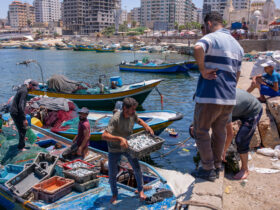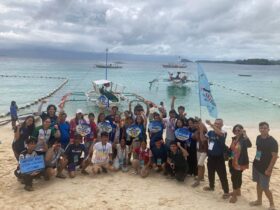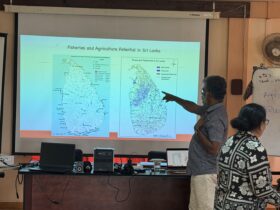Statement made by: International Collective in Support of Fishworkers (ICSF).
Made at: Review Conference on the Agreement for the Implementation of the Provisions of the United Nations Convention on the Law of the Sea of 10 December 1982 relating to the Conservation and Management of Straddling Fish Stocks and Highly Migratory Fish Stocks. New York, 24-28 May 2010.
1. Thank you Mr. President for giving us this opportunity to speak. There are an estimated two million small-scale and artisanal fishers, particularly in developing countries dependent on straddling and highly migratory fish stocks for their livelihood. Some of the indigenous peoples and coastal communities in small island developing countries are primarily dependent on tuna resources for their life and livelihood. Large numbers of women are dependent on processing tuna in many coastal communities.
2. Recent reports from ICCAT indicate high socio-economic relevance of small tuna fisheries for many coastal countries and local communities particularly in the Mediterranean Sea, in the Caribbean and in West Africa. IOTC reports that over 50 per cent of the total catch of IOTC species is taken by artisanal fisheries. Recent WCPFC reports also indicate the importance of small-scale artisanal tuna fisheries to the Western and Central Pacific Ocean countries.
3. It is, however, a matter of concern that there are no reliable estimates of catch and effort data for highly migratory fish stocks caught, in particular, by artisanal fleet. It is important to find cost-effective means to get such estimates. In the absence of timely and reliable data, States and RFMOs should assess how traditional knowledge of small-scale artisanal fishing communities could be applied to sustainable fisheries conservation, management and development of straddling and highly migratory fish stocks, in line with Article 12.12 of the 1995 FAO Code of Conduct for Responsible Fisheries.
4. Respecting the social pillar of sustainable development and human rights is integral to the success of long term fisheries conservation and management. This would, inter alia, involve addressing safety and ensuring better working and living conditions of fishers and establishing mechanisms for social security.
5. While considering modern approaches to fisheries management such as
ecosystem approach and precautionary approach, or while complementing them with area-based management tools such as closed areas, marine protected areas and reserves, it is important to take into account the interests of artisanal and subsistence fishers and indigenous people consistent with Article 5 (i) and Article 24.2 (b) of the Agreement.
6. It is also important to consider consultative and participatory regimes for fisheries conservation and management that would involve all relevant parties having a legitimate interest in the use and management of straddling and highly migratory fish stocks.
7. While undertaking conservation and management of straddling and highly migratory fish stocks due recognition should also be given to the traditional practices, needs and interests of indigenous people and local fishing communities which are highly dependent on fishery resources for their livelihood, in accordance with Article 7.6.6 of the 1995 FAO Code of Conduct for Responsible Fisheries. Such a balanced approach is needed to gear up greater ownership among fishers to conservation and management measures.
8. While eliminating subsidies that promote overfishing and overcapacity is desirable, it should be recognized that subsidies can be an effective tool in meeting the genuine sustainable fisheries development aspirations of developing nations, especially of countries that are in the process of developing their own national fleet to harvest their due shares. We support the statements made by Brazil and India yesterday in this respect. Taking cue from Japan, we should not only talk of penalties but also of incentives to strengthen implementation of the Agreement. Certain forms of fisheries subsidies can thus be viewed as an incentive for sustainable development.
9. We would like to bring to your attention, Mr. President, that the main drivers of overcapacity and overfishing in many developing countries seem to be indiscriminate lending and investment operations of local merchants and moneylenders. Adopting effective fisheries management regimes at the national level with appropriate checks and balances on investment, ownership, beneficial ownership and on control of fishing vessels, with greater transparency in decision- making, can yield concrete results in the fight against overcapacity and overfishing towards better implementation of the Agreement. This is an area that needs some considered attention at different levels.





Leave a Reply